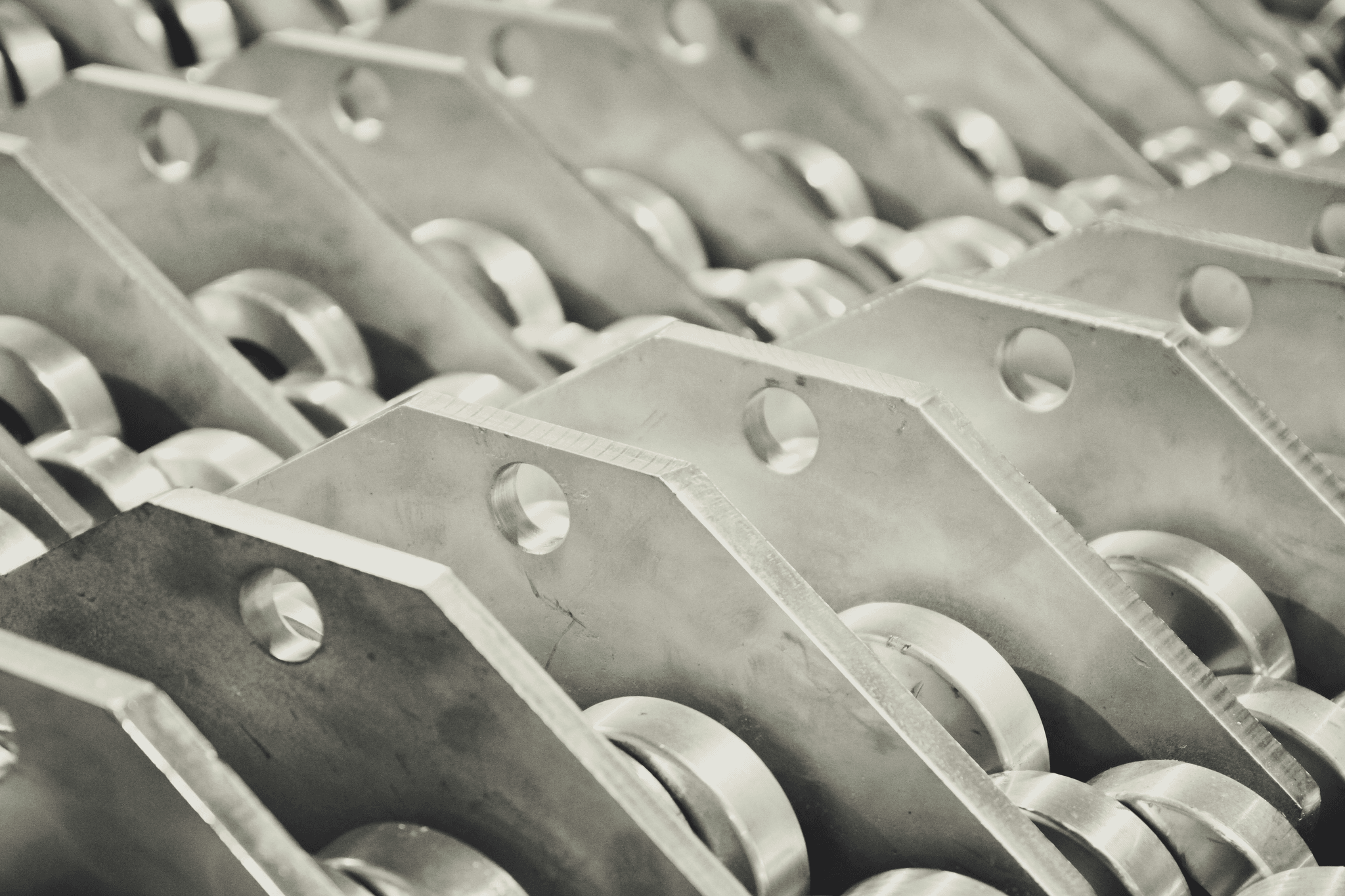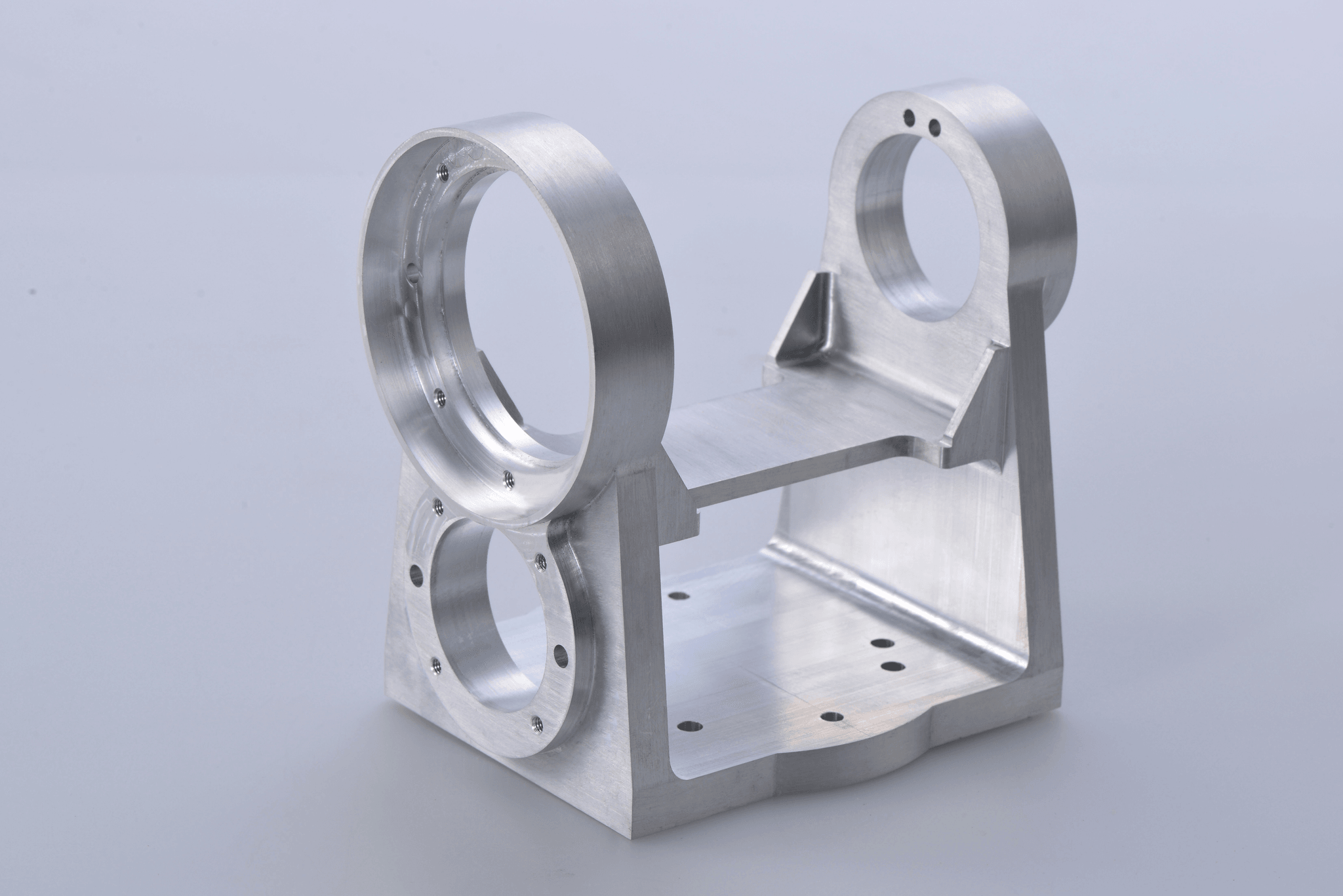Introduction

When it comes to aluminum, understanding the different grades is essential. From 6061 to 5052, each grade has its own unique properties and applications. Exploring aluminum alloys can help in choosing the best grade for specific needs, whether it's for automotive parts, gas appliance parts, or power tool parts.
Understanding Aluminum Grades
Aluminum grades play a crucial role in determining the strength, corrosion resistance, and machinability of the metal. Each grade is identified by a four-digit number that indicates its alloying elements and properties.
What are the grades of aluminum?
There are various grades of aluminum, but two popular ones are 6061 and 5052. Understanding their differences can help in selecting the right grade for specific applications.
Exploring Aluminum Alloys
Aluminum alloys are combinations of aluminum with other metals or elements to enhance their properties. Exploring these alloys can provide valuable insights into their suitability for different uses.
The Basics of Aluminum Grades

What is 6061 grade aluminum?
6061 grade aluminum is a versatile heat-treatable alloy known for its exceptional mechanical properties. It offers good corrosion resistance and weldability, making it suitable for a wide range of applications in various industries.
In contrast, 5052 aluminum is a non-heat-treatable alloy with good workability and high fatigue strength. It is often used in marine and automotive applications due to its excellent corrosion resistance. While 6061 aluminum offers higher strength and machinability compared to 5052, the latter is preferred for applications that require forming and bending without cracking.
What is the difference between 6061 and 5052 aluminum?
The main difference between 6061 and 5052 aluminum lies in their composition and characteristics. While both are excellent for welding, 6061 offers higher strength and better machinability compared to the softer and more formable 5052.
While 6061 aluminum offers higher strength and better machinability, 5052 aluminum is known for its excellent corrosion resistance, making it suitable for marine and chemical applications. Additionally, 5052 aluminum is more easily formable, making it a popular choice for sheet metal fabrication and other applications where shaping is required. Both alloys have their own unique set of characteristics that make them suitable for different applications, so it's important to consider the specific requirements of your project when choosing between the two.
Aluminum grades explained
Aluminum grades are classified based on their alloying elements, such as copper, magnesium, silicon, and zinc, which determine their properties. Understanding the composition of different grades is crucial in selecting the right material for specific applications. For example, 6061 aluminum is a popular grade known for its high tensile strength and excellent corrosion resistance, making it ideal for structural applications in aerospace and automotive industries. On the other hand, 1100 aluminum is commonly used in chemical and food processing equipment due to its superior formability and weldability. Each grade offers unique characteristics that cater to diverse industrial needs.
Common Aluminium Grades

When it comes to common aluminium grades, there are a few that stand out for their versatility and strength. The 6061 aluminum alloy is a popular choice due to its excellent corrosion resistance and weldability, making it suitable for various structural applications. On the other hand, the 5052 aluminum alloy is known for its high fatigue strength and formability, making it ideal for marine and automotive applications. Lastly, the 7075 aluminum alloy is renowned for its high strength-to-weight ratio, making it perfect for aerospace and military applications.
6061 Aluminum Alloy
6061 grade aluminum is a versatile heat-treatable alloy with good formability and weldability. It contains magnesium and silicon as its major alloying elements, providing excellent corrosion resistance and strength. This makes it an ideal choice for a wide range of applications, from structural components to marine fittings.
5052 Aluminum Alloy
The main difference between 6061 and 5052 aluminum lies in their composition and properties. While both alloys offer good corrosion resistance, the 5052 aluminum alloy has higher fatigue strength and better formability compared to 6061 grade aluminum. This makes it a preferred choice for applications where forming operations are critical.
7075 Aluminum Alloy
7075 grade aluminum is one of the strongest aluminium alloys available on the market today. With zinc as its primary alloying element, this alloy offers exceptional strength-to-weight ratio, making it suitable for high-stress applications such as aerospace components and high-performance bicycle frames.
Choosing the Best Aluminium Grade

When it comes to selecting the best aluminum grade, it's essential to consider the specific requirements of your project. Factors such as strength, corrosion resistance, weldability, and machinability all play a crucial role in determining the most suitable grade for your application. Understanding the unique properties and characteristics of each aluminum grade is key to making an informed decision.
What is the best aluminum grade?
The best aluminum grade ultimately depends on the intended use and performance requirements. For example, 6061 aluminum is known for its excellent strength and weldability, making it a popular choice for structural applications. On the other hand, 5052 aluminum offers exceptional corrosion resistance, making it ideal for marine environments. It's important to assess your specific needs and consult with experts to determine which grade will best meet your project requirements.
Factors to consider when selecting aluminum grades
When evaluating aluminum grades, several factors should be taken into account. These include mechanical properties such as tensile strength and hardness, as well as considerations related to formability, surface finish, and anodizing capabilities. Additionally, factors like cost-effectiveness and availability should also be considered when selecting the most suitable aluminum grade for your application.
Aluminum grades chart
An aluminum grades chart provides a valuable reference tool for comparing different alloys based on their properties and characteristics. This visual aid allows engineers and designers to easily identify the specific attributes of each grade, helping them make informed decisions about material selection based on their project requirements.
Application of Aluminium Grades

Aluminium grades are widely used in various industries due to their versatility and durability. From automotive parts to gas appliance parts, these grades play a crucial role in the manufacturing of high-quality components.
Automotive Parts
Aluminium grades such as 6061 and 5052 are commonly used in the production of automotive parts. These grades offer excellent strength-to-weight ratio, making them ideal for components like engine blocks, wheels, and body panels.
Gas Appliance Parts
When it comes to gas appliance parts, aluminium grades provide corrosion resistance and thermal conductivity. From burner heads to knobs and handles, these grades ensure the durability and safety of gas appliances.
Power Tool Parts
Aluminium grades are also utilized in power tool parts due to their lightweight nature and ability to withstand heavy-duty usage. Components such as drill bodies, saw handles, and motor housings benefit from the strength and reliability of these grades.
Appliance Parts
In the appliance industry, aluminium grades find applications in various parts such as refrigerator shelves, oven doors, and washer tubs. Their resistance to rust and ability to maintain structural integrity make them a preferred choice for appliance manufacturers.
Buttler's Role in Aluminium Grade Production

Ningbo Buttler Precision Machinery Co., Ltd. plays a crucial role in the production of high-quality aluminum grades. With a specialization in die-casting molds, Buttler ensures precision and excellence in every component produced. Their expertise in aluminum and zinc casting, along with their smart part engineering, sets them apart as industry leaders.
Buttler's specialization in die-casting molds
Buttler's focus on die-casting molds allows for the creation of intricate and precise aluminum components. Their attention to detail and commitment to quality result in durable and reliable products that meet the highest standards of excellence.
Buttler's expertise in die-casting molds also extends to their proficiency in aluminum and zinc casting. This broad range of capabilities allows Buttler to cater to a variety of industries and applications, providing versatile solutions for their clients. By leveraging their knowledge and experience in different casting techniques, Buttler is able to offer customized options that meet the specific requirements of each project.
Aluminium and zinc casting expertise at Buttler
With extensive experience in both aluminum and zinc casting, Buttler has honed their expertise to deliver top-notch products that cater to diverse industrial needs. Their casting capabilities ensure that each component meets the specific requirements of its intended application.
Buttler's commitment to excellence extends beyond their casting expertise. They also prioritize sustainability and environmental responsibility in their manufacturing processes. By utilizing advanced technologies and eco-friendly practices, Buttler ensures that their aluminum and zinc casting operations minimize their impact on the environment while still delivering high-quality products. This dedication to sustainable manufacturing sets Buttler apart as an industry leader in both expertise and ethical business practices.
Smart Part Engineering by Buttler
Buttler's smart part engineering approach emphasizes innovative tooling designs engineered for cost-effective manufacturing. This results in maximized performance and casting quality while minimizing the need for secondary operations, providing customers with exceptional value and efficiency.
Now you have a better understanding of how Ningbo Buttler Precision Machinery Co., Ltd.'s expertise contributes to the production of high-quality aluminum grades, ensuring top-notch performance across various applications.
Conclusion

Your Guide to Common Aluminium Grades has provided valuable insights into the world of aluminum alloys. Understanding the Importance of Aluminium Grades is crucial for selecting the best aluminum grade for your specific application. What are the grades of aluminum? Well, we have explored that in detail, including Aluminum grades explained and a comprehensive aluminum grades chart.
Your Guide to Common Aluminium Grades
In this guide, we have delved into the specifics of 6061 grade aluminum and highlighted the difference between 6061 and 5052 aluminum. We have also discussed what is 6061 grade aluminum and what is the best aluminum grade for various applications.
After understanding the specifics of 6061 grade aluminum and the differences between 6061 and 5052 aluminum, it's important to consider the best aluminum grade for various applications. Whether you're looking for a material that offers high strength, good workability, or corrosion resistance, choosing the right grade is crucial. For example, 6061 aluminum is commonly used in structural applications such as bridges and buildings due to its excellent strength-to-weight ratio, while 5052 aluminum is often chosen for marine and chemical processing equipment because of its resistance to saltwater corrosion.
Understanding the Importance of Aluminium Grades
Understanding the importance of aluminium grades is essential for making informed decisions when selecting materials for manufacturing processes. By exploring different aluminium alloys and their properties, you can optimize your production processes and improve product quality.
Exploring The World of Aluminum Alloys
Aluminum alloys offer a wide range of options for different applications, from automotive parts to power tool components. With our detailed exploration of aluminium grades, you can make educated choices that align with your specific manufacturing needs.
Buttler plays a significant role in aluminium grade production by specializing in die-casting molds, aluminium and zinc casting expertise, and smart part engineering. Their innovative tooling designs are engineered for cost-effective manufacturing while maximizing performance and casting quality.
By understanding Your Guide to Common Aluminium Grades, you can make informed decisions about selecting the best aluminium grade for your manufacturing needs while taking advantage of Buttler's expertise in producing high-quality aluminium components.

